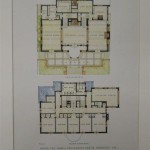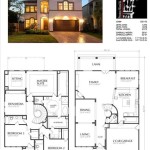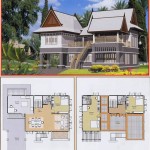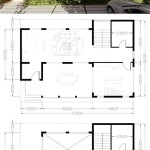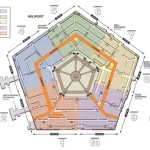Small House Plans New Zealand: Essential Considerations
When embarking on the journey of designing and building a small house in New Zealand, it is crucial to carefully consider every aspect to ensure that the outcome aligns with your needs, budget, and lifestyle. This article explores the essential considerations that will help you create a small house that is both functional and fulfilling.
1. Determine Your Space Requirements
The first step is to assess your space requirements. Consider the number of bedrooms, bathrooms, and living areas you need. Think about your current lifestyle and anticipate any changes in the future. Determine the minimum square footage required to accommodate your essential needs comfortably.
2. Maximize Natural Light and Space
In small houses, natural light is essential for creating a sense of spaciousness. Incorporate large windows and skylights to flood the interiors with sunlight. Utilize open floor plans and connect different areas to enhance the flow of light and air.
3. Choose a Compact Design
A compact design is key to optimizing space in a small house. Consider single-story plans to eliminate the need for stairs. Utilize built-in storage solutions, such as drawers under beds or shelves in walls, to maximize storage capacity without cluttering the space.
4. Prioritize Energy Efficiency
In New Zealand, energy efficiency is crucial for minimizing utility costs. Choose energy-efficient appliances, insulation, and windows. Consider a heat pump system for heating and cooling, which can significantly reduce energy consumption.
5. Consider Outdoor Space
Even in a small house, it is beneficial to have outdoor space for relaxation and fresh air. Include a small patio, balcony, or garden area to extend your living space outdoors. These areas can provide a sense of spaciousness and connection to nature.
6. Set a Realistic Budget
Before embarking on your project, establish a realistic budget that includes not only the construction costs but also the cost of land, permits, and ongoing maintenance. Determine your financial constraints and work within them to avoid overspending.
7. Seek Professional Advice
Working with a qualified architect or designer is highly recommended. They can assist you in creating a small house plan that meets your specific needs and is in compliance with building codes. Their expertise can save you time, money, and ensure that your vision is realized.
Conclusion
Creating a small house plan in New Zealand requires careful consideration of space requirements, natural light, compact design, energy efficiency, outdoor space, budget, and professional advice. By addressing these essential aspects, you can design a small house that is not only practical but also comfortable and fulfilling. Remember that a small house should not be a compromise but an opportunity to create a cozy and sustainable living space that meets your needs.

Dayton Plan Affordable Practicality Little Pig Building Co

Horton Build 2 0 The Plan Heidi

Tiny House Floor Plans Absolute Houses

Horton Build 2 0 The Plan Heidi

Tiny House Floor Plans Absolute Houses

Our Journey To Simple Living Blog Heidi Horton

Tiny House Floor Plans Absolute Houses

Small House Plan 2 Bedroom Home Design Bed Study Granny Flat Plans Instant New Zealand

Affordable Tiny House 18 X 28 Adu In Law Cabin Guest Small Home Plans And Blueprints New Zealand

Tiny House Floor Plans Absolute Houses

